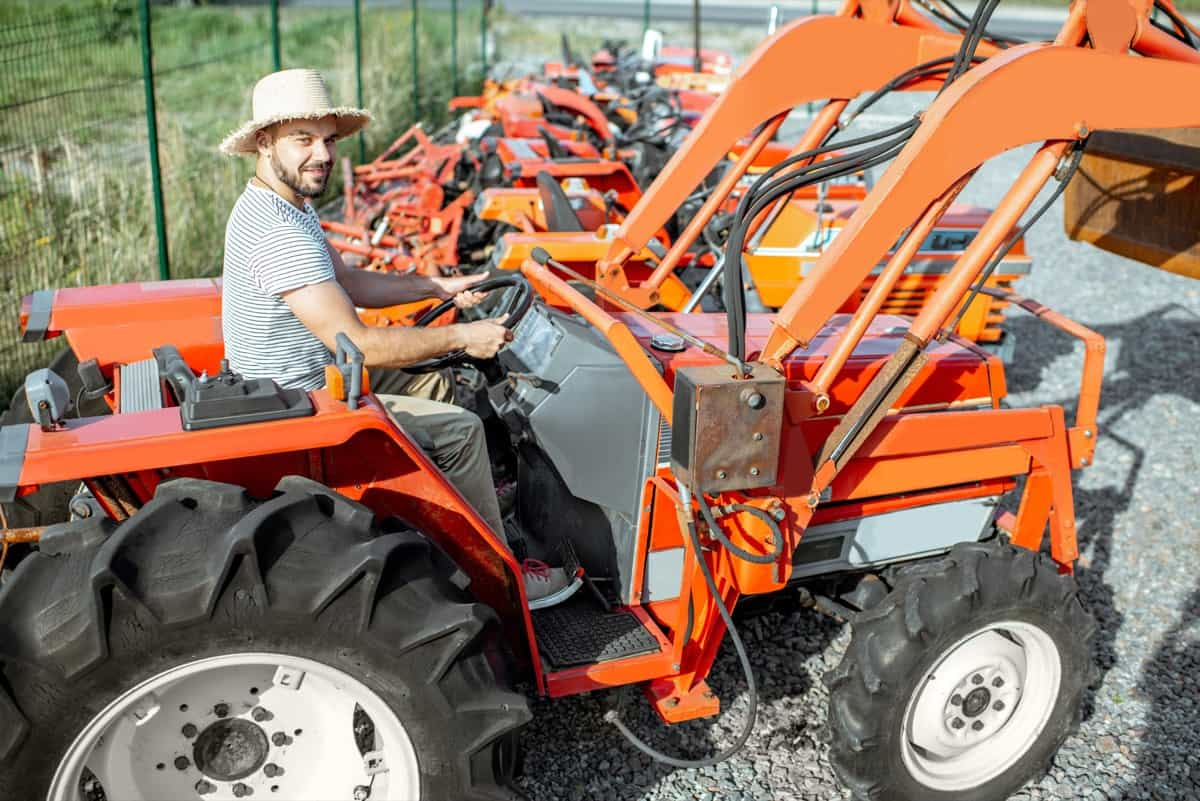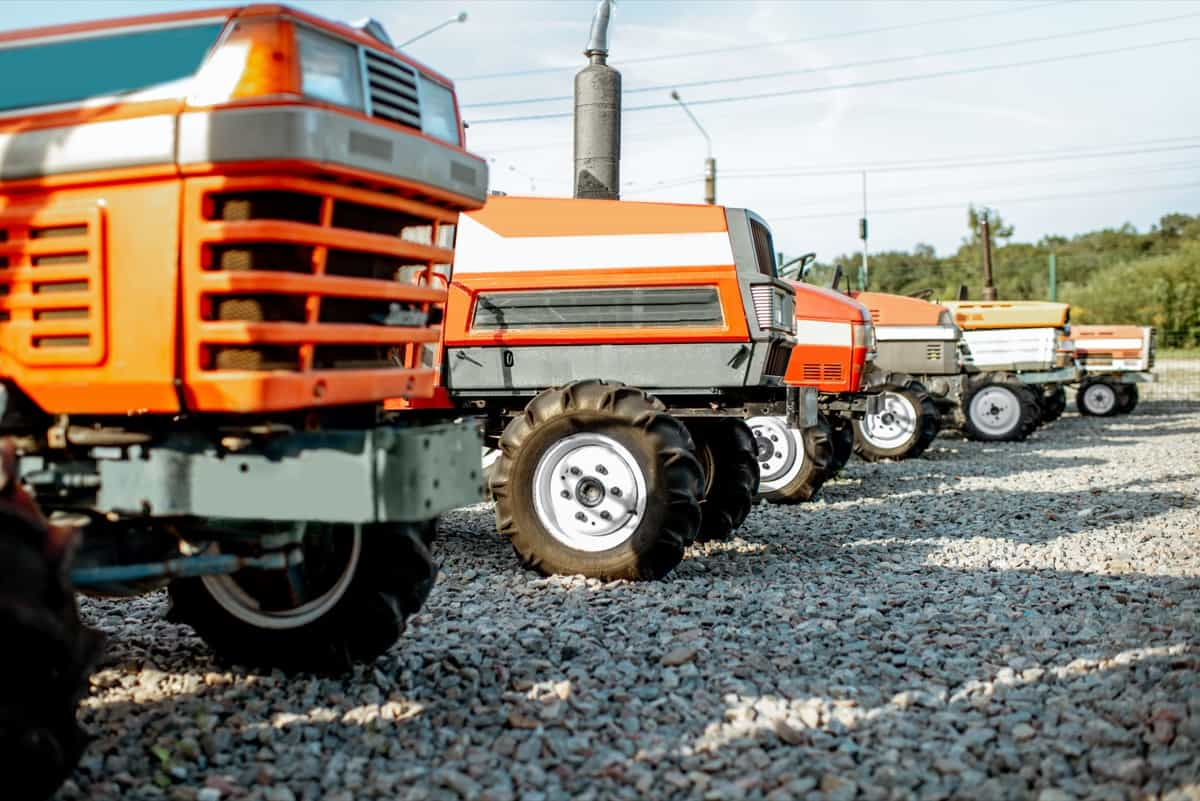Choosing the right tractor for your farm is crucial for efficient and productive farming operations. A tractor is a versatile piece of machinery that can increase the efficiency and effectiveness of your farming activities greatly. However, with so many options in the current market, it can be mind-boggling to make the right choice. Through this article, we will guide you through choosing the right tractor for your farm by considering various factors and requirements.

How to Choose the Right Tractor for Your Farm
Understanding Your Farming Needs: Factors to Consider When Choosing a Tractor
When choosing a tractor for your farm, it is crucial to understand your farming needs. There are several factors to consider to ensure you select the right tractor. First, assess the size and layout of your farm to determine the appropriate horsepower and size of the tractor. Consider the terrain and soil type to determine if you need a two-wheel or four-wheel drive.
Evaluate the tasks you need the tractor to perform, such as plowing, mowing, or hauling, and check if the tractor has the necessary attachments. Lastly, consider your budget and maintenance requirements. You can choose the right tractor for your farm by carefully considering these factors.
Assessing Your Farm Size and Terrain: Matching Tractor Power and Size to Your Requirements
When choosing a tractor for your farm, assessing your farm size and terrain is important to ensure you select the right tractor power and size. The power of a tractor is measured in horsepower (HP) and determines its ability to perform tasks efficiently. For small farms with less than 20 acres, a compact tractor with 20-30 HP is usually sufficient.
Medium-sized farms, ranging from 20 to 100 acres, may require a 40-75 HP tractor. Large farms with over 100 acres or challenging terrain may need a 75-150 HP tractor. By matching the tractor’s power and size to your requirements, you can maximize productivity and efficiency on your farm.
Analyzing Your Farming Tasks: Identifying the Necessary Attachments and Implements
Next, analyze the tasks you need the tractor to perform on your farm. Different farming tasks require specific attachments and implements. For example, if you primarily engage in crop farming, you may need a tractor with attachments such as a plow, harrow, or planter. Livestock farmers, on the other hand, may require a tractor with attachments like a loader, hay baler, or manure spreader. Identifying the necessary attachments and implements in advance will help you choose a tractor to fulfill your farming tasks effectively.
Evaluating Fuel Efficiency and Operating Costs: Making Informed Decisions for Long-Term Savings
When choosing a tractor, evaluating its fuel efficiency and operating costs is important. Tractors with higher fuel efficiency can help reduce fuel expenses in the long run. Moreover, consider the maintenance and repair costs associated with the tractor. Opting for a tractor with lower operating costs can save you money. Consider the availability of spares and the brand’s reputation for reliability and longevity. Making informed decisions regarding fuel efficiency and operating costs will ensure long-term savings for your farm.
In case you missed it: Benefits of Electric Tractors in Agriculture

Considering Tractor Features and Options: Customizing Your Equipment for Optimal Performance
Horsepower: The horsepower you need will depend on your farm’s size and the tasks you need the tractor to perform. Consider the terrain you’ll be working on and the equipment you’ll be using with the tractor.
Transmission: Tractors have various transmission options, including manual, automatic, and hydrostatic. Each has advantages and disadvantages, so choosing one that matches your skill level, workload, and terrain is important.
Attachments and Implements: Tractors can be equipped with various attachments and implements, such as front-end loaders, backhoes, and mowers. Determine which attachments are essential for your farm operations and ensure your chosen tractor can accommodate them.
Comparing Different Tractor Brands and Models: Researching Reliability and Customer Reviews
Research: Take the time to research different tractor brands and models available in the market. Look for reputable manufacturers with a history of producing reliable and high-quality tractors.
Reliability: Read customer reviews and testimonials to gauge the reliability of different tractor models. Look for feedback on performance, durability, and ease of maintenance.
Dealer Support: Consider the availability of authorized dealers and service centers near your farm. Access to reliable maintenance and service support is crucial to running your tractor smoothly.
Exploring Maintenance and Service Support: Ensuring Ongoing Assistance for Your Tractor
Warranty: Check the warranty given by the manufacturer. A longer warranty period indicates the manufacturer’s confidence in their product’s quality.
Parts Availability: Ensure spare parts for your chosen tractor are readily available. Easy access to parts will significantly reduce downtime in case of a breakdown.
Service Network: Choose a tractor brand with a wide service network. This ensures you can find qualified technicians to service your tractor when needed.
Budgeting for Your Tractor Purchase: Balancing Cost with Quality and Functionality
One of the first things you must do when choosing a tractor is establish a budget. It is crucial to balance cost, quality, and functionality. While it’s tempting to go for the most affordable option, it’s important to remember that cheaper tractors may not always offer the durability and performance you need.
In case you missed it: Top 10 Tractors in India: Companies and Prices

Consider your farm’s requirements and choose a tractor that does not break the bank. Research various brands and models, compare prices, and read reviews to make an informed decision.
Understanding the Importance of Safety Features: Prioritizing Operator Protection and Farm Security
Safety should be a top priority when choosing a tractor for your farm. Look for tractors with essential safety features such as rollover protection structures (ROPS), seat belts, and protective guards. ROPS are designed to prevent the tractor from overturning, while seat belts keep the operator securely in place during operation. Additionally, consider features such as proper lighting, warning signals, and audible alarms that enhance farm security and reduce the risk of accidents. Prioritizing safety will ensure the well-being of both operators and farm workers.
Seeking Expert Advice: Consulting with Agricultural Professionals for Guidance
To make an informed decision, it is always beneficial to seek expert advice. Consult with agricultural professionals such as agronomists, farm equipment dealers, or experienced farmers who can provide valuable insights and recommendations. These experts have the knowledge and experience to guide you in selecting the right tractor for your farming needs. They can help assess your farm’s requirements, consider soil type, terrain, and workload factors, and recommend suitable tractor models to enhance productivity and efficiency.
In case you missed it: How to Start a Farm Machinery Business: A Profitable Agriculture Idea

Conclusion
By understanding your farming needs, assessing your farm size and terrain, analyzing your farming tasks, and evaluating fuel efficiency and operating costs, you can confidently choose the right tractor for your farm. Remember, investing in the right tractor will enhance productivity and contribute to your farming operations’ overall success and profitability.
- Feed Your Flock for Less: Top 10 Tips to Save on Chicken Feed
- Ultimate Guide to Ossabaw Island Hog: Breeding, Raising, Diet, and Care
- Hatching Answers: The Top 10 Reasons Your Chickens Aren’t Laying Eggs
- Eggs and Economics: Breaking Down the Cost of Raising Backyard Chickens
- Defend Your Greens: Proven Methods to Keep Iguanas Out of Your Garden
- Ultimate Guide to Cinnamon Queen Chicken: A Comprehensive Guide for Beginners
- Ultimate Guide to California Tan Chicken: Breeding, Raising, Diet, Egg-Production and Care
- Ultimate Guide to Marsh Daisy Chicken: Breeding, Raising, Diet, and Care
- 10 Types of Chicken Farming Businesses You Can Start for Profits